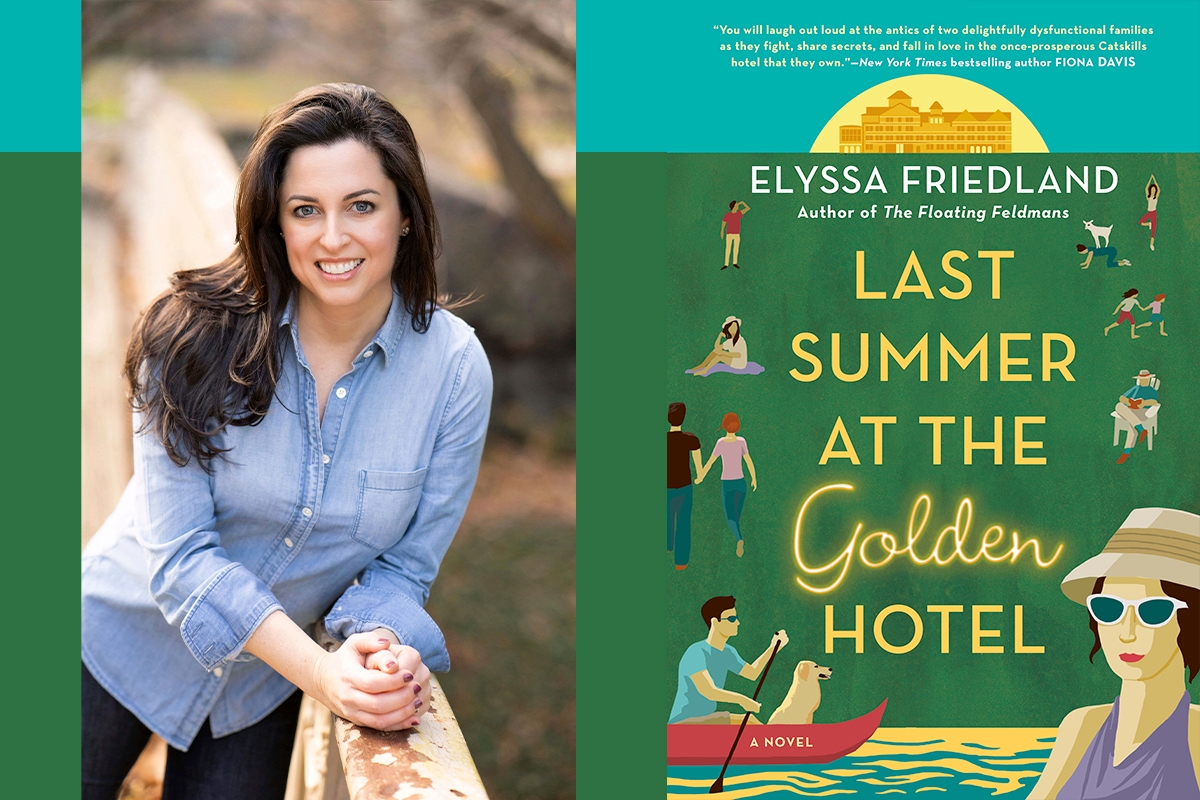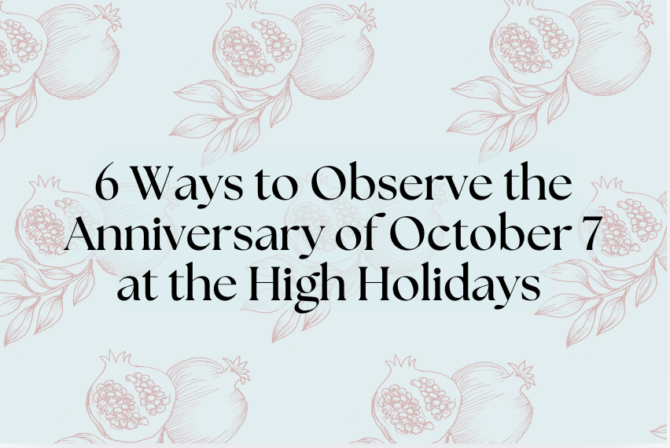Technically, the Catskill Mountains are a mountainous region in southeastern New York state.
But culturally and psychologically, the Catskills are so much more than that.
In its prime, the Catskills boasted some 500 hotels and resorts that catered to mostly Jewish New Yorkers fleeing the hot and crowded city. The Borscht Belt, as it came to be known, with its resorts competing for the best entertainment, helped launch the careers of countless legends, including Mel Brooks, Sid Caesar and Joan Rivers.
By the mid-1960s, however, the magic began to fade, and throughout the following decades the area declined rapidly as a go-to vacation destination. And yet, the legend remains. Thanks to “Dirty Dancing,” many of us who grew up in the “post-Catskills” era remain deeply attached to the idea of the Borscht Belt — I myself feel a strong connection to the Catskills, a phenomenon I attribute to endless Hebrew school carpool rides in the 1980s, during which we played the movie’s soundtrack. More recently, “The Marvelous Mrs. Maisel” tapped into the enduring nostalgia for the Catskills, with episodes that featured Jews on vacation playing mah jongg, fiercely competing in “Simon Says” games led by the hotel’s tummler (activities director) and more.
And now, in her latest novel, writer Elyssa Friedland — whose previous book, “The Floating Feldmans,” centered on a Jewish family on a cruise ship — explores the deep attachment Jews feel for the Catskills. “Last Summer at the Golden Hotel” is about two Jewish families that jointly own a fading Borscht Belt resort. When an irresistible offer is made, three generations of the families must make a heart-wrenching decision about whether or not to sell the hotel. Along the way, as the novel changes perspective among various members of the Goldman and Weingold clans, secrets are revealed, relationships bloom and bust, and reporters and businesspeople meddle.
As Kveller’s Jordana Horn says, “This novel reads so easily that you’ll wonder when you’ll get to see it on Netflix.” In short, it’s a perfect summer read.
Last month, while our kids were at sleepaway camp (ah, bliss!), Friedland and I connected over email, and I asked her what she was up to during this respite from the parenting grind. “I am just going out a ton for dinner and to see friends and definitely having a lot more cocktails than normal,” she tells me. “I’m really treasuring the quiet and the extra mental space I have without having to minister to their daily needs.”
Of course, we also corresponded about much more than that, including the real-life inspirations for “Last Summer at the Golden Hotel,” why she writes books that center on Jewish families, and how she made the shift from being an attorney to a full-time writer. Read on for our conversation.
This interview had been condensed and lightly edited.
What inspired you to write a novel set in a Catskills resort?
I was looking for a beautiful setting that would be a great backdrop for a multi-generational story. I knew that I wanted the families that I wrote about to be Jewish, so the Catskills was truly the perfect choice. The Catskills have changed so much over the years and every generation has a different experience with it, so much so that it kind of tells the story of how times change without me having to write a single word.
Do you have a personal connection to the Catskills?
My mother spent every summer of her childhood at the bungalow colonies. Her family lived in Brooklyn the rest of the year and headed to the Catskills for the entire summer. During the week, it was her mother and sister, and her father joined on the weekends, as was common. She’s not that easy to please (hello Jewish mothers everywhere — I see you), but somehow the Catskills did the trick! She has only joyful memories of blueberry-picking with her grandmother, seeing the shows at night, and playing cards during the day with her friends.
My parents took us to Kutsher’s twice in the mid-’90s. I absolutely loved it and was in the first row for bingo and trivia. As a kid, I didn’t notice the fading carpets and peeling wallpaper. I was mostly thrilled that I could order as many desserts as I wanted.
Was there a particular resort upon which you modeled The Golden Hotel?
It’s a mash-up of Grossinger’s, the Concord and Kutsher’s, though all are explicitly referenced in the novel as competitors. The Golden would have kicked their butts back in the day.
You clearly did a lot of research for this book. Did you uncover any favorite anecdotes or juicy stories about the Catskills?
My best and favorite source was Bunny Grossinger, daughter-in-law of Jennie Grossinger. I met her by chance at Pilates in New York City and she was kind enough to tell me incredible stories that were divine fodder for the book. Bunny is a national treasure. My favorite story to tell about writing this book is when I gave the first draft to my mother. She said something like, “Good story, but way too PG. Everybody was shtupping everybody back then.You gotta spice it up.”
Many of your books center on Jewish characters. Is this something that’s important to you?
Yes! I am the product of a Jewish day school and a Jewish summer camp. My culture is a huge part of my identity and I feel like I have a lot of insight into the workings of Jewish families and all the accoutrements… the guilt, the food, the mothers. Being Jewish is awesome. I’m proud to write about it, especially in the age of rising antisemitism.
Do you feel your own Jewish identity influences your work?
It’s so bound up in who I am that I’m not sure I can even separate my identity from my work.
Please tell us a bit about yourself and your family.
I live in New York City (the best place ever!). My children are 13, 11 and 7. We made a Covid bar mitzvah last spring which was actually very special and meaningful despite being complicated. My kids attend a Jewish day school on the Upper West Side.
Your career path to becoming a writer is an unexpected one. How did your journey come to be?
I always wanted to be a writer. The problem is that it doesn’t come with a blueprint or a big paycheck. When I was a college senior I thought about getting a job in journalism but I was fearful of leaving the tri-state area and jobs in New York were very hard to come by. I also loved being a student and the academic setting so I decided to apply to law school. In some ways I was kicking the can down the road for three years. I worked at a firm for a while but wasn’t satisfied. I had no joy in the work. Eventually I quit and gave the writing a go. Fortunately, it was the right decision.
What advice would you give to other moms with young children and busy jobs who dream of becoming an author?
It’s not easy. You have to be prepared for a tremendous amount of work that requires self-discipline. If you are lucky enough to get a book published, you have to go out and promote it. This will mean being comfortable leaving your children with your partner or a sitter. For me, the tradeoffs are 100% worth it. I love my job and wouldn’t have it any other way. My children are so proud of me.








